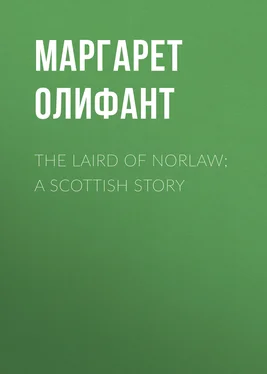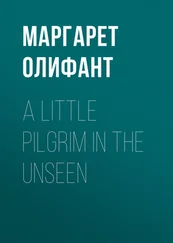Маргарет Олифант - The Laird of Norlaw; A Scottish Story
Здесь есть возможность читать онлайн «Маргарет Олифант - The Laird of Norlaw; A Scottish Story» — ознакомительный отрывок электронной книги совершенно бесплатно, а после прочтения отрывка купить полную версию. В некоторых случаях можно слушать аудио, скачать через торрент в формате fb2 и присутствует краткое содержание. Жанр: foreign_prose, literature_19, foreign_antique, на английском языке. Описание произведения, (предисловие) а так же отзывы посетителей доступны на портале библиотеки ЛибКат.
- Название:The Laird of Norlaw; A Scottish Story
- Автор:
- Жанр:
- Год:неизвестен
- ISBN:нет данных
- Рейтинг книги:3 / 5. Голосов: 1
-
Избранное:Добавить в избранное
- Отзывы:
-
Ваша оценка:
- 60
- 1
- 2
- 3
- 4
- 5
The Laird of Norlaw; A Scottish Story: краткое содержание, описание и аннотация
Предлагаем к чтению аннотацию, описание, краткое содержание или предисловие (зависит от того, что написал сам автор книги «The Laird of Norlaw; A Scottish Story»). Если вы не нашли необходимую информацию о книге — напишите в комментариях, мы постараемся отыскать её.
The Laird of Norlaw; A Scottish Story — читать онлайн ознакомительный отрывок
Ниже представлен текст книги, разбитый по страницам. Система сохранения места последней прочитанной страницы, позволяет с удобством читать онлайн бесплатно книгу «The Laird of Norlaw; A Scottish Story», без необходимости каждый раз заново искать на чём Вы остановились. Поставьте закладку, и сможете в любой момент перейти на страницу, на которой закончили чтение.
Интервал:
Закладка:
“And his sons!” said Katie, hastily. “Poor boys! I wonder what they’ll do?” This was one peculiarity of her elder-sisterly position which Katie had not escaped. She thought it quite natural and proper to speak of Patie and Huntley Livingstone, one of whom was about her own age, and one considerably her senior, as the “boys,” and to take a maternal interest in them; even Dr. Logan, excellent man, did not see any thing to smile at in this. He answered with the most perfect seriousness, echoing her words:—
“Poor boys! We’re short-sighted mortals, Katie; but there’s no telling—it might be all the better for them that they’re left to themselves, and are no more subject to poor Norlaw. But about Melmar? I think, my dear, I might as well ride over there to-day.”
“Wait till we’ve seen Mrs. Livingstone, papa,” said the prudent Katie. “Do you see that man on the road—who is it? He’s in an awful hurry. I think I’ve seen him before.”
“Robert Mushet, from the hill; he’s always in a hurry, like most idle people,” said the minister.
“No; it’s not Robbie, papa; he’s as like the officer as he can look,” said Katie, straining her eyes over the high bank which lay between his path and the high-road.
“Whisht, my dear—the officer? Do you mean the exciseman, Katie? It might very well be him, without making any difference to us.”
“I’m sure it’s him—the man that came to Norlaw yesterday!” cried Katie, triumphantly, hastening the good doctor along the by-road at a pace to which he was not accustomed. “Something’s happened! Oh papa, be quick and let us on.”
“Canny, my dear, canny!” said Dr. Logan. “I fear you must be mistaken, Katie; but if you’re right, I’m very glad to think that Melmar must have seen the error of his way.”
Katie was very indifferent about Melmar; but she pressed on eagerly, full of interest to know what had happened at Norlaw. When they came in sight of the house, it was evident by its changed aspect that things were altered there. The windows were open, the blinds drawn up, the sunshine once more entering freely as of old. The minister went forward with a mind perturbed; he did not at all comprehend what this could mean.
The door was opened to them by Marget, who took them into the east room with a certain solemn importance, and who wore her new mourning and her afternoon cap with black ribbons, in preparation for visitors.
“I’ve got them a’ persuaded to take a rest—a’ but Huntley,” said Marget; “for yesterday and last night were enough to kill baith the laddies and their mother—no’ a morsel o’ meat within their lips, nor a wink of sleep to their e’en.”
“You alarm me, Marget; what does all this mean?” cried Dr. Logan, waving his hand towards the open windows.
Katie, more eager and more quick-witted, watched the motion of Marget’s lips, yet found out the truth before she spoke.
“The maister’s funeral,” said Marget, with a solemn triumph, though her voice broke, in spite of herself, in natural sorrow, “took place yestreen, at midnicht, sir, as there was nae other way for it, in the orderings of Providence. Maister Huntley arranged it so.”
“Oh, poor boys!” cried Katie Logan, and she threw herself down on a chair, and cried heartily in sympathy, and grief, and joy. Nothing else was possible; the scene, the circumstances, the cause, were not to be spoken of. There was no way but that way, of showing how this young heart at least felt with the strained hearts of the family of Norlaw.
“Ye may say sae, Miss Katie,” said Marget, crying too in little outbursts, from which she recovered to wipe her eyes and curtsey apologetically to the minister. “After a’ they gaed through yesterday, to start in the storm and the dark, and lay him in his grave by torchlight in the dead of the night—three laddies, that I mind, just like yesterday, bits of bairns about the house—it’s enough to break ane’s heart!”
“I am very much startled,” said Dr. Logan, pacing slowly up and down the room; “it was a very out-of-the-way proceeding. Dear me!—at midnight—by torchlight!—Poor Norlaw! But still I can not say I blame them—I can not but acknowledge I’m very well pleased it’s over. Dear me! who could have thought it, without asking my advice or any body’s,—these boys! but I suppose, Katie, my dear, if they are all resting, we may as well think of turning back, unless Marget thinks Mrs. Livingstone would like to have you beside her for the rest of the day.”
“No, papa; she would like best to be by herself—and so would I, if it was me,” said Katie, promptly.
“Eh, Miss Katie! the like of you for understanding—and you so young!” cried Marget, with real admiration; “but the minister canna gang away till he’s seen young Norlaw.”
“Who?” cried Dr. Logan, in amazement.
“My young master, sir, the present Norlaw,” said Marget, with a curtsey which was not without defiance.
The good minister shook his head.
“Poor laddie!” said Doctor Logan, “I wish him many better things than his inheritance; but I would gladly see Huntley. If you are sure he’s up and able to see us, tell him I’m here.”
“I’ll tell him wha’s here,” said Marget, under her breath, as she went softly away; “eh, my puir bairn! I’d gie my little finger cheerful for the twa of them, to see them draw together; and mair unlikely things have come to pass. Guid forgive me for thinking of the like in a house of death!”
Yet, unfortunately, it was hard to avoid thinking of such profane possibilities in the presence of two young people like Huntley and Katie—especially for a woman; not a few people in the parish, of speculative minds, who could see a long way before them, had already lightly linked their names together as country gossips use, and perhaps Huntley half understood what was the meaning of the slight but significant emphasis, with which Marget intimated that “the minister and Miss Katie ” were waiting to see him.
The youth went with great readiness. They were, at least, of all others, the friends whom Huntley was the least reluctant to confide in, and whose kindness he appreciated best.
And when pretty Katie Logan sprang forward, still half crying, and with bright tears hanging upon her eye-lashes, to take her old playmate’s hand, almost tenderly, in her great concern and sympathy for him, the lad’s heart warmed, he could scarcely tell how. He felt involuntarily, almost unwillingly, as if this salutation and regard all to himself was a sudden little refuge of brighter life opened for him out of the universal sorrow which was about his own house and way. The tears came to Huntley’s eyes—but they were tears of relief, of ease and comfort to his heart. He almost thought he could have liked, if Katie had been alone, to sit down by her side, and tell her all that he had suffered, all that he looked forward to. But the sight of the minister, fortunately, composed Huntley. Dr. Logan, excellent man as he was, did not seem so desirable a confidant.
“I don’t mean to blame you, my dear boy,” said the minister, earnestly; “it was a shock to my feelings, I allow, but do not think of getting blame from me, Huntley. I was shut up entirely in the matter, myself; I did not see what to do; and I could not venture to say that it was not the wisest thing, and the only plan to clear your way.”
There was a little pause, for Huntley either would not, or could not, speak—and then Dr. Logan resumed:
“We came this morning, Katie and me, to see what use we could be; but now the worst’s over, Huntley, I’m thinking we’ll just go our way back again, and leave you to rest—for Katie thinks your mother will be best pleased to be alone.”
Читать дальшеИнтервал:
Закладка:
Похожие книги на «The Laird of Norlaw; A Scottish Story»
Представляем Вашему вниманию похожие книги на «The Laird of Norlaw; A Scottish Story» списком для выбора. Мы отобрали схожую по названию и смыслу литературу в надежде предоставить читателям больше вариантов отыскать новые, интересные, ещё непрочитанные произведения.
Обсуждение, отзывы о книге «The Laird of Norlaw; A Scottish Story» и просто собственные мнения читателей. Оставьте ваши комментарии, напишите, что Вы думаете о произведении, его смысле или главных героях. Укажите что конкретно понравилось, а что нет, и почему Вы так считаете.












